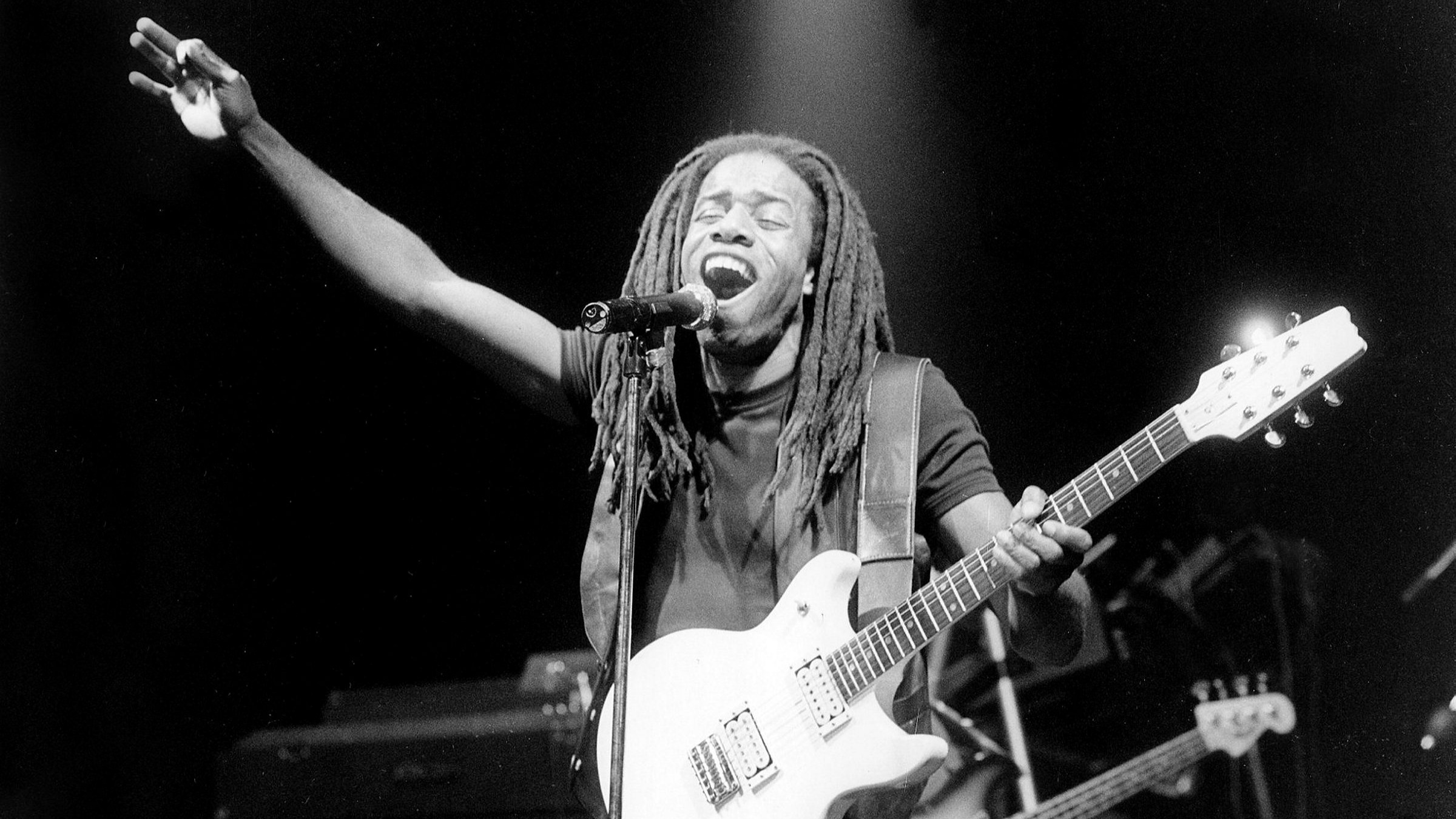“Electric Avenue” – Eddy Grant

“Electric Avenue,” released by Eddy Grant in 1982, is a song that combines infectious rhythms with incisive social commentary. Known for its distinctive blend of reggae, rock, and electronic music, the track captures the tension and unrest of the early 1980s while offering a compelling narrative of resilience and hope. This essay delves into the lyrical themes, musical composition, and cultural significance of “Electric Avenue,” exploring its impact on both the music world and its socio-political context.
At its core, “Electric Avenue” addresses the struggles and challenges faced by marginalized communities, particularly in urban settings. The title itself refers to a street in the Brixton area of London, which was the site of significant racial tension and riots in the early 1980s. The opening lines, “Down in the street there is violence / And a lot of work to be done,” immediately set the tone of the song, highlighting the pervasive sense of unrest and the need for action.
The chorus, “Oh, we gonna rock down to Electric Avenue / And then we’ll take it higher,” serves as both a call to action and a declaration of resilience. The phrase “rock down to Electric Avenue” can be interpreted as a metaphor for confronting and addressing the challenges head-on, while “take it higher” suggests a vision of progress and improvement. This duality reflects the complexity of the socio-political landscape, acknowledging the difficulties while also expressing hope for a better future.
The song’s verses further explore themes of economic hardship and social inequality. Lines like “Who is to blame in one country / Never can get to the one” and “Out in the street / Out in the playground / In the dark side of town” depict a world where systemic issues persist, and those in power often evade responsibility. This critique of social and economic structures is a powerful element of the song, making it not just a musical hit but also a significant piece of social commentary.
Musically, “Electric Avenue” is a masterful blend of genres, showcasing Eddy Grant’s innovative approach to music. The song features a driving beat, catchy melody, and a distinctive electronic riff that gives it a futuristic feel. The reggae influence is evident in the rhythm and vocal delivery, while the rock and electronic elements add a modern edge. This fusion of styles creates a sound that is both unique and accessible, appealing to a wide audience.
Eddy Grant’s vocal performance is a key component of the song’s impact. His delivery is both passionate and controlled, conveying a sense of urgency and determination. The use of repetition in the chorus reinforces the song’s message, making it memorable and anthemic. The production, with its clean lines and tight instrumentation, ensures that the song’s energy and message are conveyed clearly and powerfully.

“Electric Avenue” also holds significant cultural importance. Released at a time of widespread social and political upheaval, the song resonated with listeners who were experiencing similar struggles and frustrations. Its success on international charts brought attention to the issues it addressed, highlighting the power of music as a vehicle for social change.
The song’s music video further amplifies its themes, depicting scenes of urban life and unrest. The visual imagery of people marching and confronting adversity complements the song’s lyrics, creating a holistic portrayal of the socio-political climate of the time. This multimedia approach helped to solidify the song’s impact and reach a broader audience.

In conclusion, “Electric Avenue” by Eddy Grant is a powerful and enduring song that captures the socio-political pulse of the early 1980s. Through its compelling lyrics, innovative musical composition, and Eddy Grant’s passionate performance, the song addresses themes of social inequality, economic hardship, and resilience. Its cultural significance and lasting impact highlight the enduring relevance of its message and the power of music to inspire and provoke thought. As we listen to “Electric Avenue,” we are reminded of the importance of confronting social issues and striving for a better future, echoing the song’s call to “take it higher.”













